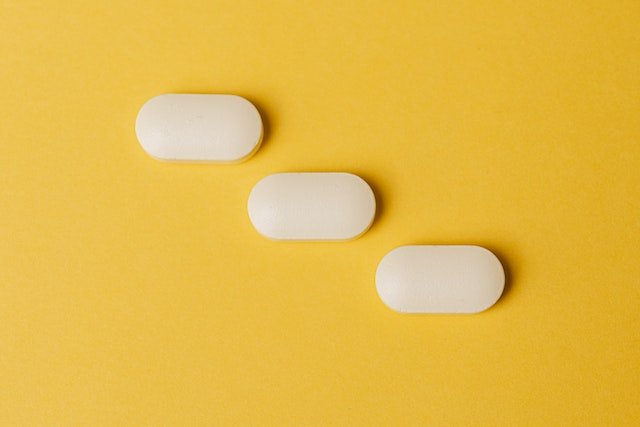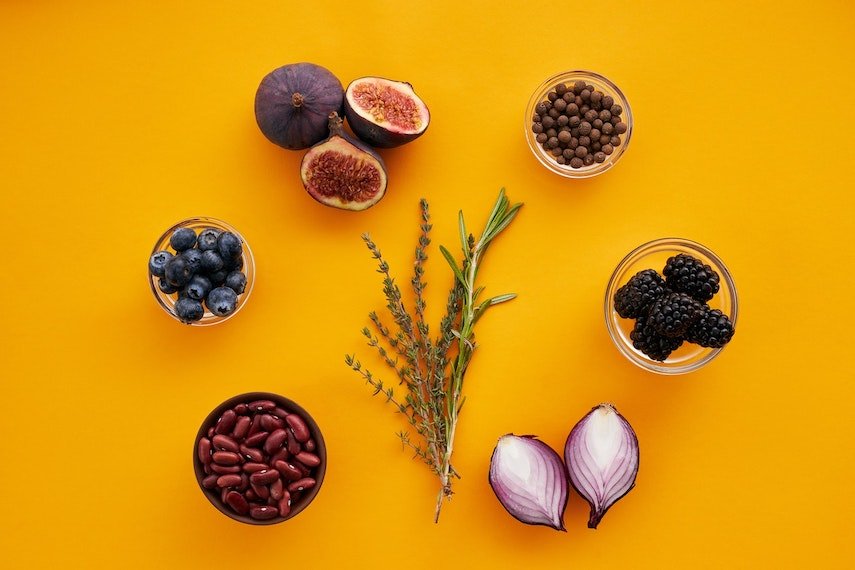We’ve often heard the saying, “You are what you eat,” but what if we took it one step further, bio-hack our way to better skin —what if we could eat our way to radiant skin? From essential fatty acids to antioxidants, certain nutrients can do wonders for our complexion. This guide is a quick roadmap to understanding the role of nutrition in skincare, particularly for melanin-rich skin. Besides all the lotions and potions, what else can we be doing to unlock the secrets to glowing, healthier skin? Is the secret in what we eat?
Introduction: The Skin-Nutrition Connection
Topical treatments work, no doubt, but if you’re looking to make a lasting impact, a more natural change, we need to look inside—literally. The nutrients we consume are the building blocks for healthy skin. And when it comes to melanin-rich tones that require specific care, how can we eat specifically for the skin concerns that plague us? Remember, when you nourish from within, it shows on the outside.
How Diet Affects Melanin-Rich Skin
Ever wondered if some people have naturally glowing skin? And if they do, is it genes or products? Well, it’s not just about genes or skincare products; diet plays an integral role. For melanin-rich skin, which tends to be prone to hyperpigmentation and dryness, the importance of a nutrient-rich diet can’t and must not be overstated. Nutrients like Vitamin C and Omega-3 fatty acids can help regulate melanin production and offer additional moisturisation. Who is going to say no that?
Omega-3 Fatty Acids: The Skin’s Best Friend
Think of Omega-3s as the superhero of fats. Not only do they combat inflammation, but they also play a significant role in skin cell regeneration. They’re crucial for melanin-rich skin, which often suffers from dryness or eczema. Foods like salmon, flaxseeds, and walnuts are rich in Omega-3s and should be part of your regular diet. Of course, be conscious of food intolerances and dietary choices, when introducing these into your diet.
The Antioxidant Powerhouse: Vitamin C
If Omega-3s are the superheroes, then consider Vitamin C a trusty sidekick in spandex. A potent antioxidant, Vitamin C helps combat oxidative stress and supports collagen production—both essential for skin health. And the other part? It can also inhibit the enzyme tyrosinase, which helps to manage hyperpigmentation. A glass of orange juice or a serving of strawberries can provide a good amount of this essential vitamin.
Superfoods from Around the Globe for Melanin-Rich Skin
You don’t have to stick to a local diet to reap skin benefits; the world is your nutritional oyster. For instance, I’m sure my skin was different during my spell in Tokyo and Kyoto. I wasn’t sure at the time but I researched it. The secret? Seaweed, a staple in their diet, is rich in iodine and antioxidants. Here are some other power foods you may want to consider incorporating into your diet.
Turmeric: Or Curcurmin – same same
Turmeric from the Indian subcontinent can work wonders. Whether you’re enjoying some Sushi or savoring curry, think about the nutritional punch these foods are packing. Curcumin, the primary health-boosting compound in turmeric, can benefit by managing inflammation.Ghee: The Ayurvedic Elixir
Many of you may turn your noses up at the idea of adding fat to your diet, but hear me out. Ghee, a form of clarified butter, has been celebrated in Ayurvedic medicine for centuries. It’s not just about taste; ghee contains healthy fats and vitamin E, enhancing skin moisture and elasticity. Yes, it’s more than just a cooking ingredient; it’s a skincare regimen in a jar.Moringa: Superfood for radiant skin
This plant is a superstar when it comes to nutrient density. Rich in vitamins A, C, and E, Moringa is a one-stop-shop for all your skin needs. My grandma used to say, “Just a leaf a day.” She may have been onto something!Avocado : Good for face and tummy
High in healthy fats, avocados help keep your skin hydrated and supple. They are particularly rich in oleic acid, which can help with skin redness and irritation.Salmon : Sustainably Sourced
Omega-3 fatty acids in salmon help reduce skin inflammation and may lessen the severity of acne and other skin issues.Green Tea : Morning Cuppa
Loaded with antioxidants, green tea is excellent for combating the harmful effects of free radicals. Green tea also has anti-inflammatory properties and it contains L-theanine, an amino acid that lowers stress.Papaya : In season
This tropical fruit contains enzymes that can lighten scars and blemishes. Proteolytic enzymes can help with inflammation, reducing acne and antioxidants combat free radical damage. It has a high content of vitamins A, B, and C. Enjoy in a nice spicy papaya salad.Kimchi : Delicious for some
A fermented dish rich in probiotics, kimchi helps maintain gut health, which can directly affect your skin.Couscous: Not to be confused with Quinoa
Packed with selenium. The selenium in couscous is a potent antioxidant, which can lowers oxidative stress.
Beware: Foods to Eat With Caution
Not all foods are your skin’s ally. High-glycemic foods can cause insulin levels to spike, leading to inflammation and, subsequently, skin issues. A moment on the lips, and it could be damaging your skin, too.
Sugar: The Hidden Enemy
I can’t stress this enough: processed sugar is not your friend! As satisfying as that chocolate bar may be in the moment, the build up of sugar can negatively impact your skin. High sugar levels can cause glycation. Glycation occurs when sugar molecules bind to proteins or lipids (fats) without the mediation of enzymes. This usually results in the formation of compounds that can be detrimental to cellular functions and contribute to aging and various diseases.
In the context of skin health, glycation has been implicated in the deterioration of collagen and elastin fibers, which we need, to maintain our skin’s elasticity and youthful appearance.
Dairy Dilemmas
Who doesn’t love a cheesy pizza? Specifically a four cheese pizza. Hmmm. Dairy in high quantities can wreak havoc on our skin, causing everything from acne to accelerated aging. Hormones levels in the milk can impact you, while those of us who struggle to digest lactose can have wider side-effects. Specifcally, dairy products sometimes contain hormones like bovine growth hormone and insulin-like growth factor-1 (IGF-1). These hormones may disrupt the natural hormonal balance in the human body, possibly triggering or exacerbating acne. Some studies suggest that dairy can cause low-grade inflammation in the body, which might aggravate existing skin conditions such as acne, rosacea, and rashes.
While there is not yet a consensus on which milks, and the exact impact, it’s something to consider in your journey to radiant skin.
Supplements: Do They Really Help?

Supplements promise a shortcut to flawless skin, but be cautious. The thing is, there’s no one-size-fits-all when it comes to supplements. I remember being so hyped about the idea of collagen supplements. Supplements should work in concert with your body and your diet. Always consult a healthcare professional if you are unsure how to incorporate supplements into your diet.
Summing It Up: The Holistic Approach
Eating your way to radiant skin isn’t about chasing a fad, doing it for two weeks and giving up. It’s about understanding the intrinsic link between what goes into your body and how it manifests on your skin. Whether it’s the seaweed in Japan, the turmeric in India, or the Moringa in Nigeria, let’s go beyond borders to bring out the best in our melanin-rich skin. Learn more about specific care for melanin-rich skin in our blogs.
Your Skin Is a Reflection of Your Inner Health
When all’s said and done, let’s not forget that beautiful skin starts from within. How you feel on the inside will inevitably reflect on the outside. So, let’s try to make healthier choices, not just for our skin but for our overall well-being.
Time for Action:
Are you ready to make a change? To really invest in yourself and your skin? It’s a journey, and because we don’t see the immediate impact on our faces, it is easy to give up. Incorporate these changes as part of wider healthier choices for holistic wellbeing.







One thought on “Eating Your Way to Radiant Skin: A Nutritional Guide”
It’s so true that food plays an essential part of skincare. If you are eating water rich foods, you are getting more hydration to your skin. If you have excema, you want to eat foods that won’t cause inflammation. Everyone who wants to jump on the supplement train has to keep in mind that the foods you eat with those supplements can either help or hinder the effects, so it’s not ever a magical solution.
You must be logged in to post a comment.